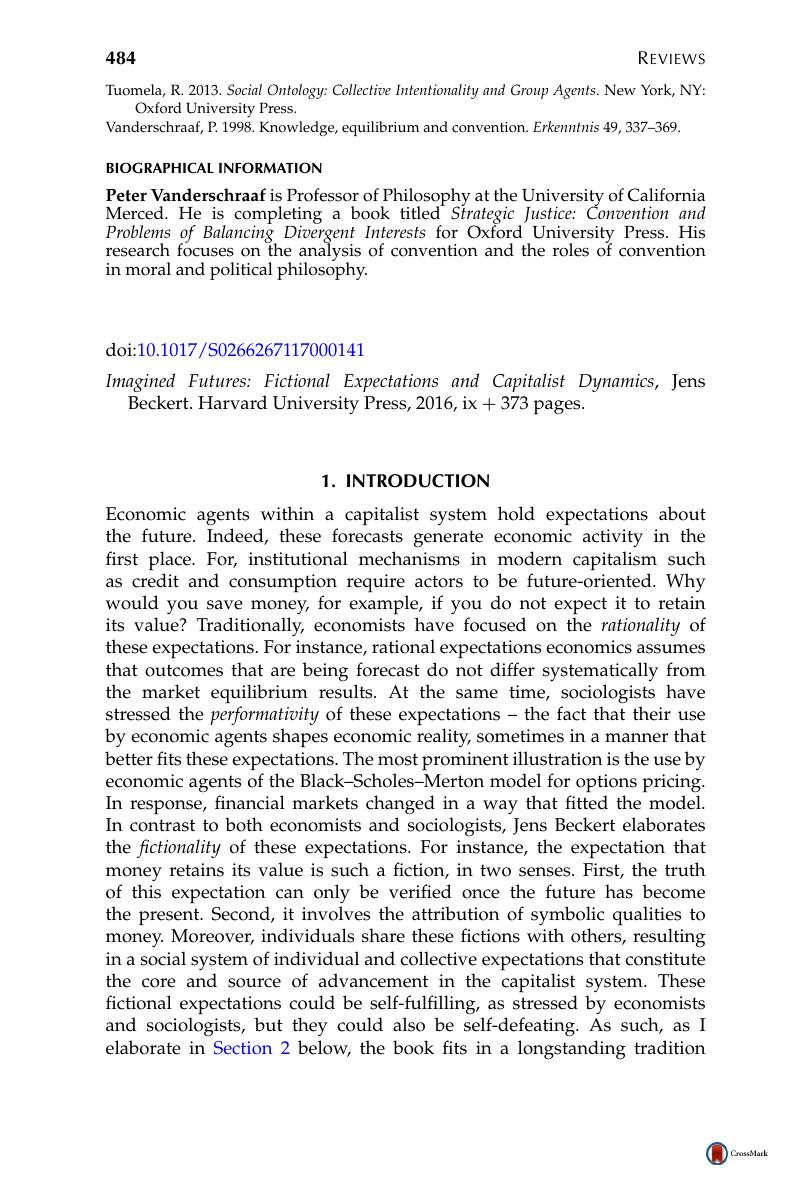No CrossRef data available.
Article contents
Imagined Futures: Fictional Expectations and Capitalist Dynamics, Jens Beckert . Harvard University Press, 2016, ix + 373 pages.
Published online by Cambridge University Press: 26 July 2017
Abstract
An abstract is not available for this content so a preview has been provided. Please use the Get access link above for information on how to access this content.

- Type
- Reviews
- Information
- Copyright
- Copyright © Cambridge University Press 2017
References
REFERENCES
Akerlof, G.A. and Kranton, R.E., 2010. Identity Economics: How Our Identities Shape Our Work, Wages, and Well-being. Princeton, NJ: Princeton University Press.CrossRefGoogle Scholar
Bavel, B. van. 2016. The Invisible Hand? How Market Economies Have Emerged and Declined Since AD 500. Oxford: Oxford University Press.CrossRefGoogle Scholar
Boulding, K.E.
1949–1950. Income or welfare. Review of Economic Studies
17: 77–86.CrossRefGoogle Scholar
Grunberg, E.
1986. Predictability and reflexivity. American Journal of Economics and Sociology
45: 475–488.CrossRefGoogle Scholar
Grunberg, E. and Modigliani, F.. 1954. The predictability of social events. Journal of Political Economy
62: 465–478.CrossRefGoogle Scholar
Hands, D.W.
1990. Grunberg and Modigliani, public predictions and the New Classical macroeconomics. Research in the History of Economic Thought and Methodology
7: 207–223.Google Scholar
Jong, E. de. 2009. Culture and Economics: On Values, Economics and International Business. London: Routledge.Google Scholar
Karlsson, N., Loewenstein, G. and McCafferty, J.. 2004. The economics of meaning. Nordic Journal of Political Economy
30: 61–75.Google Scholar
Simon, H.A.
1954. Bandwagon and underdog effects and the possibility of election predictions. Public Opinion Quarterly
18: 245–253.CrossRefGoogle Scholar



